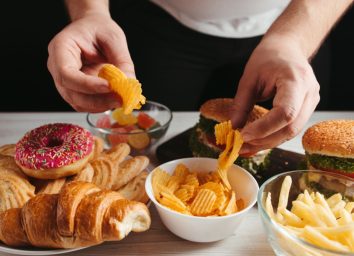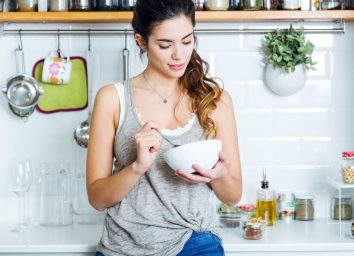Secret Eating Habits for Getting a Lean Body After 50, Say Nutritionists
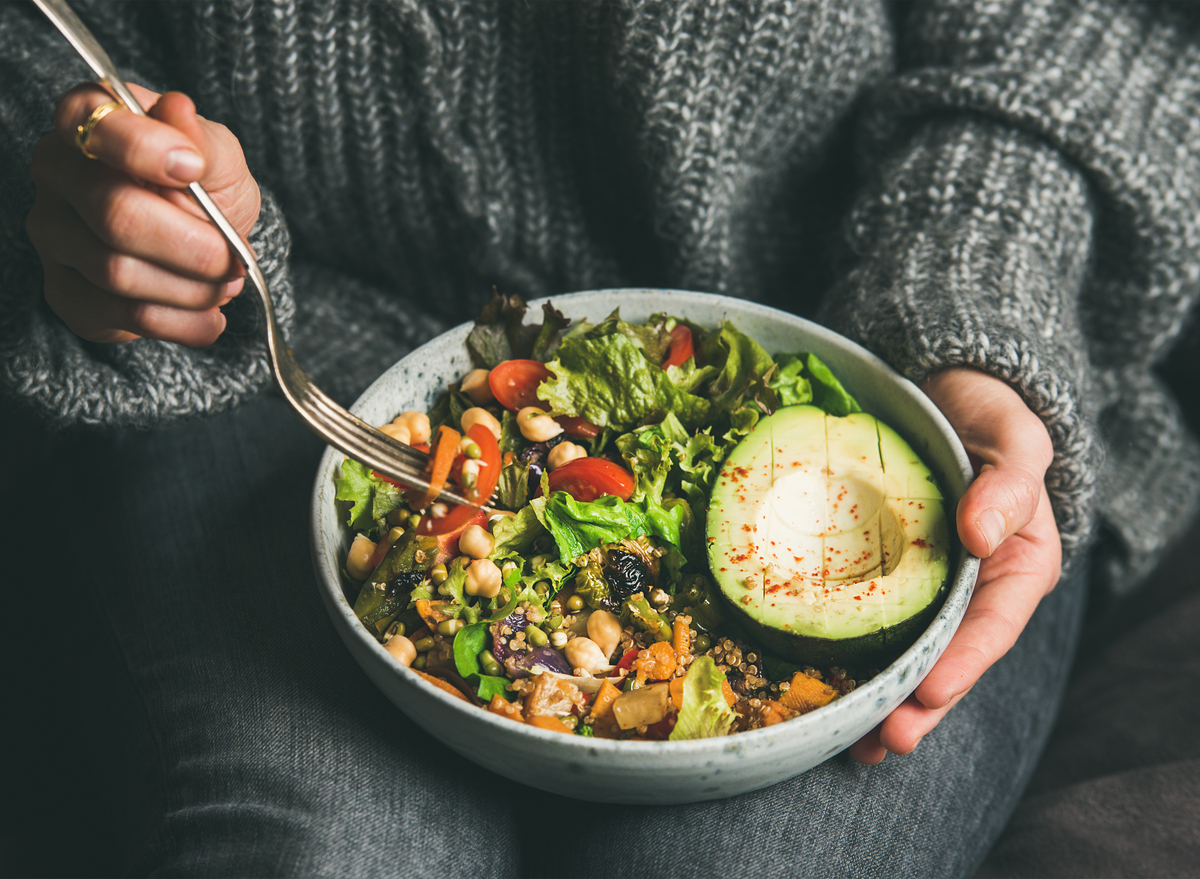
Two aspects of your life change at around age 50 that may impact how difficult it can be to get that lean body you’re after. One: As you age, you start to lose muscle mass, unless you keep up with your strength training, and with that muscle loss may come to a slower metabolism. Two: You likely have more disposable income to spend on dining out. A USDA study in 2018 found that the average American’s budget for food eaten away from home topped 50%, and the total average daily energy intake while eating out increased from 17% to 34% over 30 years.
What that means is that we are eating out of the house more often and consuming more calories when we do. So, the best eating habit you can adopt, especially after age 50, is to cook more at home instead of going out, say registered dietitians we spoke with.
By cooking more meals, you will be in better control of the food you’re eating and how it’s cooked. When you eat at home it’s easier to eat fresh “real” food and avoid processed food (high sugar, packaged and animal foods), says registered dietitian nutritionist Laura Krauza MS, RDN, of Waistline Dietitian. “What we eat drives hunger and satiety signals,” she says. “Real food has the nutrients that our body’s control panel can use to register hunger and fullness sensations.” The first step toward the habit of cooking more meals at home is to recognize how often you are eating out and start cutting back. Also, monitor how many of your meals involve processed foods. Planning out your meals and shopping for fresh vegetables, legumes, fruits, lean meats, and whole grains will help you get into the cooking habit. Start here with The Best Meal Plan if You’re Over 50.
Here are some other eating habits to establish to help you get the body of a 30-year-old at 50.
Learn to recognize physical hunger.
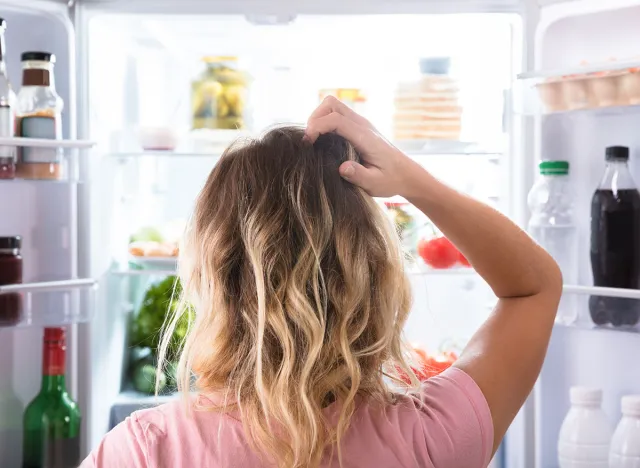
“Develop ‘intuitive eating‘ skills by learning to recognize true physiologic hunger and how it’s distinct from emotional hunger,” says Krausa. One way to do that is to form a habit of eating something every three to four hours and making sure to “include protein-rich foods with each meal throughout the day,” she recommends. Protein digests more slowly than carbohydrates do, keeping hunger satisfied longer even when you are stressed and may otherwise reach for a sugary emotional fix.
Reduce carbohydrates.
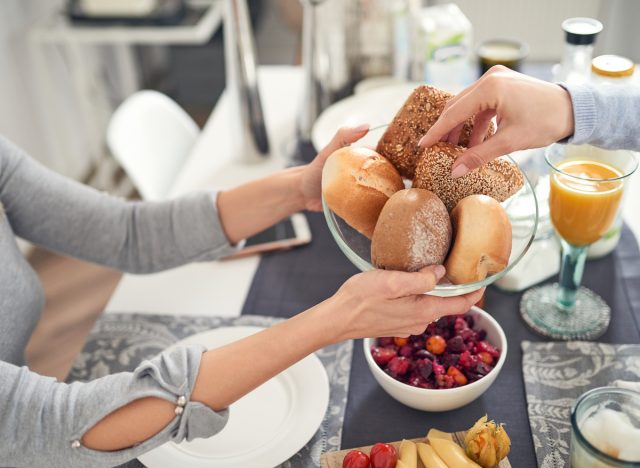
“When you turn 40 and head into your 50s, it seems that things start falling apart: Your hormones get all weird, sleep is messed up, and you start to gain weight in areas where you never did before,” says Ana Reisdorf, MS, RD, a registered dietitian for Wellness Verge. “Reducing the number of carbohydrates or eating them balanced with protein can help. Shoot for at least 5 servings of vegetables a day and aim to eat between 80 and 120 grams of protein per day.” Reisdorf also recommends limiting caffeine to 2 cups of coffee per day to avoid disrupting your all-important sleep and hormones. Limit alcohol to weekends and no more than 2 drinks per day.
Significantly reduce eating fried foods.
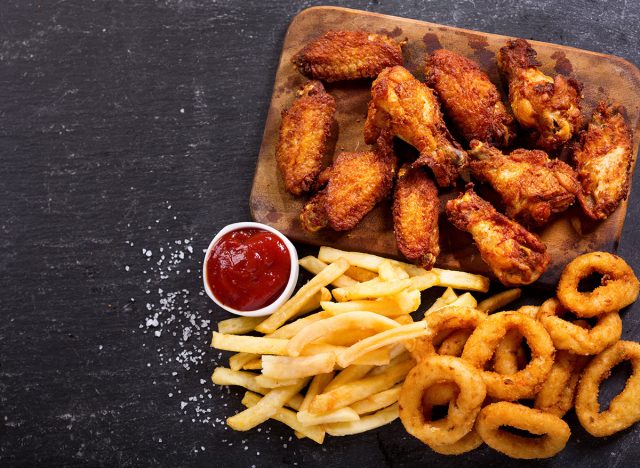
While fried foods should be reduced at any age, it’s even more important to eliminate them as you get older. By 40 and 50, your “metabolism is already beginning to slow down and the added calories and saturated fat from fried foods will only lead to increased weight gain and heart disease,” says nutritionist Lisa Richards, author of The Candida Diet.
Get more calcium.
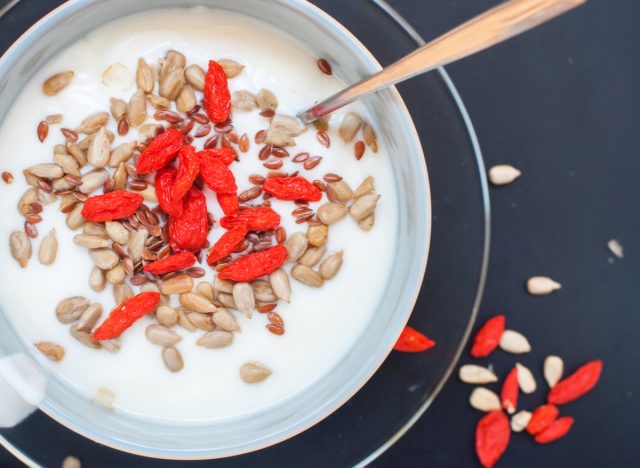
Even before you turn 50, “ramp up your calcium intake to keep your bones healthy,” says Richards. “This is especially important for women to prevent osteoporosis. Unsweetened yogurt is an excellent source of calcium, but you can get calcium from non-dairy sources, too, such as leafy greens, sardines, seeds, beans and lentils, tofu, figs, and fortified drinks.
Boost your metabolism with protein.
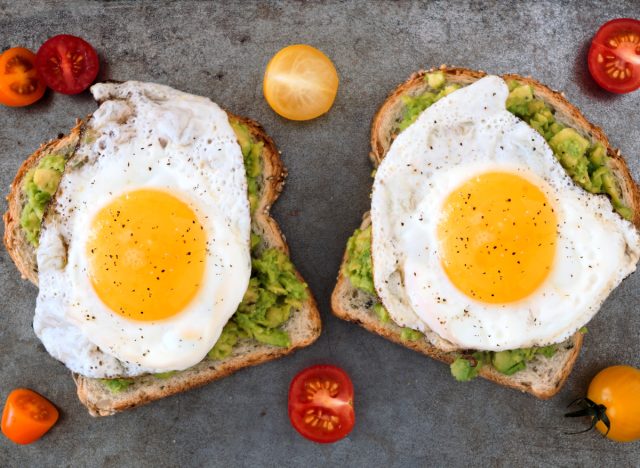
Eating high-protein foods may help increase the number of calories or energy your body burns in a few ways, according to Bianca Tamburello, RD, a registered dietitian with Fresh Communications.
Studies show that our body utilizes more energy to break down and digest protein than other foods like carbohydrates and fat. “This means that eating protein-rich foods regularly over time could help you burn more calories and support your weight loss goals,” says Tamburello. Also, protein helps maintain muscle to prevent a drop in metabolism. Good sources of lean protein include eggs, beans, and legumes, and two to three servings of seafood per week, such as sustainably raised and low-in-mercury salmon from Chile, says Tamburello.
Fiber up with legumes and whole grains.
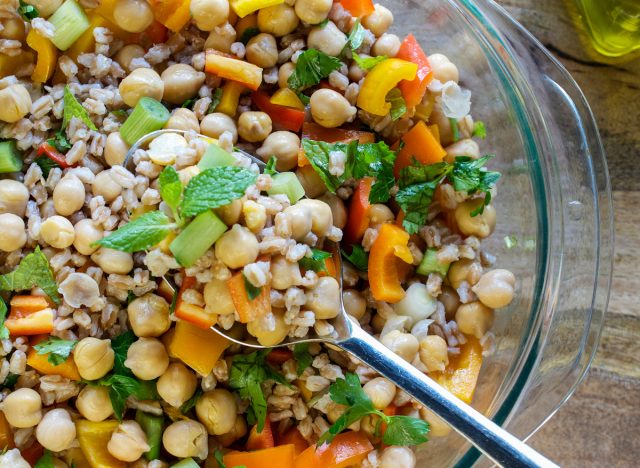
“Insulin sensitivity decreases with age, meaning the body is less equipped to manage blood sugar fluctuations like it used to,” says Isa Kujawski, MPH, RDN, owner of Mea Nutrition. Chronic high blood sugar can lead to pre-diabetes and type 2 diabetes. To keep blood sugar steady, each meal should be balanced with fiber, protein, and fat. Kujawski recommends focusing on eating complex carbohydrates such as whole grains and legumes instead of white bread, pasta, highly processed snacks, and baked goods.
Eliminate inflammatory foods.
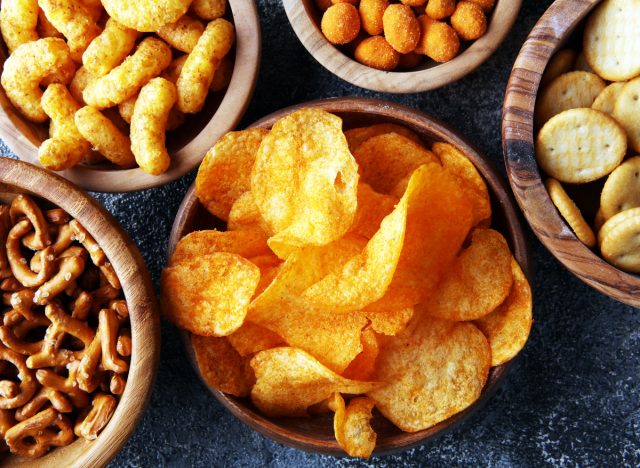
“They are your enemy and contribute to obesity and make it hard for you to get lean,” says Heather Hanks, MS, CAM, a nutritionist and medical advisor to Medical Solutions BCN. The worst inflammatory foods are refined sugar and grains, processed foods, and fried foods. “Pick a day to grocery shop and prep meals,” she advises. “This will make it easier for you to eat healthy during the week when you’re busy and feel like grabbing something quick.” For more recommendations, check out The Best Eating Habits to Fight Inflammation.
Read these next:
